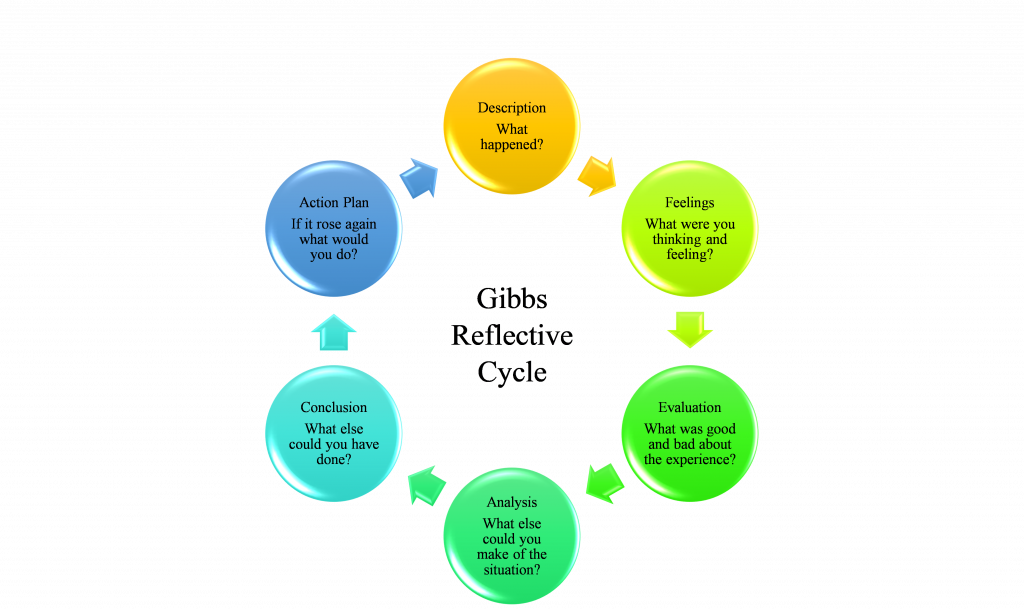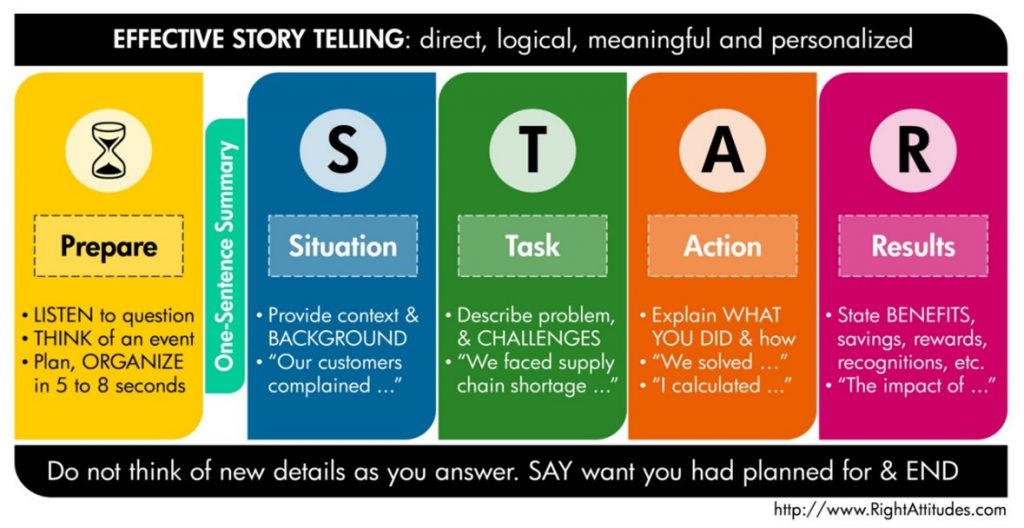The dreaded words. Everything that you are summarised in one paragraph. Your entire being, all your experiences wrapped up, neatly, in a little bow.
“Tell us about yourself.”
As soon as you hear this everything goes through your mind. Should I talk about my hobbies? My academic achievements? My work experience? How can I express who I am to the interviewer in one short paragraph?
This feeling is undoubtedly felt by many who, like me, detest the idea of job interviews. The late-night studying, the nerve-wrecking journey to the location and the overthinking. However, it is a process we must endure. Without interviews, we cannot attain our dream jobs. For me, the dream is teaching English and History. Unfortunately, teaching has a multitude of interviews involved: the PGCE interviews and the job interviews. Oh, the joys!

Luckily, the work-based learning module provided an opportunity to participate in a simulated interview process. The simulated interview granted insight into the methods and techniques involved in interviews. It provided an environment where we could practice our presentation and communication skills with our peers.
In this blog, I will be reflecting on my experience of the simulated interview. Using Gibb’s reflective cycle, I will examine the experience in six stages, evaluating my performance, preparation and assessing how the experience has prepared me for future interviews.

Description
On Thursday 1st February 2024, my classmates and I participated in a simulated interview process, to prepare us for life as a graduate, out in the big bad world. My chosen job was an English Teaching position at The Misbourne School in Buckinghamshire. To prepare, I researched the school, their website, possible questions that could be asked, and what qualities they wanted in a candidate.
“Passionate…Supportive…Dynamic…Organised…” (GOV.UK, 2024)
These words, in particular, stood out to me. They resonated with me. I knew I had what it took to be an English Teacher. My passion, empathy, flexibility, and organisation skills fuelled my desire and determination to become a teacher.

After days of preparation, the day of the interview came. I made my way to class; the long list of expectations and possible questions were all I could think about until I got to the lecture theatre.
Once we were all gathered, the lecturer, Elisa Ramazzina, split the class into four groups. We decided amongst ourselves who was going first. Courtney bravely volunteered, spearheading the team. While Courtney left the room, Gareth and I set out what questions we were going to ask. Being the interviewer was an uncanny experience, I had never been on an interview panel before.
“A great interviewer prepares well, communicates effectively, and is adept at assessing candidates based on the company’s needs. They also show genuine care for candidates.” (Bika, 2023)
During the simulated interviews, I created questions that related to my peer’s chosen job position. Funnily enough, we all want to be teachers! I tried to make my peers as relaxed as possible, while asking the nitty gritty questions, such as ‘What has been your biggest challenge so far?’ Ultimately, I wanted to ensure that my group got everything they needed from the simulated interview so they could use it as a guide to improve or prepare for future interviews.

Eventually, it was time for my own interview. I was the last person to be interviewed within our group. I was asked a series of questions, about my work experience, my hobbies and extra-curriculars and a time that I had to handle conflict. The most prominent example I could think of was a time where a child with Special Educational Needs became over stimulated and threw a chair at me…
Yes, it does sound extreme. However, as a 1-2-1 SEN classroom assistant, it is my job to ensure the children are safe and calm. So, I quickly contacted the child’s classroom assistant and made her aware of the situation, she was not present at the time, and I knew that she needed to know. As well as this, I contacted the child’s Head of Year and alerted the teachers that he had later that day. The teachers were very accommodating and created lesson plans that suited the child’s needs. During the interview, I answered every question with confidence and enthusiasm. Personally, I love scenario-based questions as they give the interviewer an “understanding of how you will behave in the new position.” (Buchanan, 2017)
As a result of the simulated interviews, I am more prepared for real-life scenarios. It provides a solid foundation that I can grow and learn from. The experience was essential and has greatly prepared me for my upcoming PGCE interviews.
Feelings
Before the interview, when I was preparing notes, questions and conducting research, I felt stressed. I thought I wouldn’t be able to remember everything that I needed to.
On the day of the interview, I felt more nervous than ever. On the way to the lecture theatre, a wave of anxiety passed through me, I felt as though I had suddenly forgotten all I had learned!
However, when I entered the room and seen the friendly faces of my peers, I felt calmer. I greeted my group, and we began the interview process.
As the interviewer, I was hesitant at first, I felt underqualified. But I swiftly blocked out my doubts and remembered an article I had read, ‘How to Be a Good Interviewer.’ The article stressed the importance of structure within an interview, stating that “adding some structure to your interviews will make them more effective.” (Recruiting Resources: How to Recruit and Hire Better, 2023) I added structure by taking notes throughout the interview and choosing questions carefully.
During my interview, I felt comfortable. I felt confident in my skills, qualities, and experience, however the nervousness started to creep in. After I answered the first few questions, I became more relaxed and realised that I could answer any question they threw at me! According to Jasper, in Beginning Reflective Practice, “emotional experiences relate to how we feel about something, and our capacity for empathy.” (Jasper, 9) For me, the entire interview process was great! It really allowed me to get past my self-imposed limitations and overthinking, present myself in the best light, and empathise with my peers.
Evaluation
After the interviews finished, the entire group banded together to discuss our feedback. I was very pleased with what my peers had to say; they complimented my body language, pace and tone of voice, confidence, and work ethic. It was a massive confidence boost!
While they didn’t give me any constructive criticism, I understand that it is quite an awkward environment where you don’t want to put anyone down. We all seemed to pass with flying colours! Most of the process was extremely positive for me. It granted insight into a teaching interview and challenged me to adapt to different questions.
One question I will never get used to answering is: ‘what is your greatest weakness?’ I answered ‘overthinking,’ as it is true, I often fixate on situations and can’t switch off. My peers warmed my heart by stating that this is actually a strength as my overthinking, especially when it concerns students, comes from a place of care and empathy.
Personally, I think that I did not use the STAR technique as well as I could have. The STAR technique requires a set structure: Situation, Task, Action, Results. With the nerves of the interview, I do feel as though I muddled up the order of the technique and left out the Results, the impact and/or the benefits of my actions. Sometimes nerves can get the better of you.

Analysis
The simulated interviews reignited my passion for teaching. Let’s be realistic, it is very hard to get into a PGCE Course in Northern Ireland, and it is easy to think you aren’t good enough or you haven’t done enough to be worthy of teaching.
However, this experience and the work-based learning module has revived my passion for teaching. For a while, it was lost under a mountain of assignments and job commitments!
Conclusion
The positive feedback I have received from my peers bolsters my decision to pursue teaching to the best of my ability. My impression and body language contribute to my geniality and approachable personality which is a key to success.
“Gibbs reflective cycle provides us with a staged framework for working through the exploration of an experience” (Jasper, 2013; 86) In retrospect, I was overly nervous and worked up about the whole process. Over time, I became more relaxed and self-assured with my skills, qualities, hobbies, and experience.
If I could go back, I would brush up on my knowledge of the STAR technique and apply it more thoroughly to the questions I was asked.
Action Plan
If the opportunity to participate in the simulated interviews rose again, I would approach the experience in a similar way. My confidence, enthusiasm, and motivation to succeed as a teacher reinforced my capabilities and success in the simulated interviews. The process, as a whole, was very positive and will be beneficial for future teaching interviews. It allowed me to develop new interview techniques and offered invaluable insight into PGCE interviews and life after university.
If I could, I would change how nervous and anxious I was prior to the interview. I understand that it is a nerve-wrecking situation, however I can’t let my nerves get the better of me. As well as this, I would opt to be the first person to be interviewed. I regret being nervous and going last.
References
[1] College Jobs ‘Preparing For A Teaching Job Interview In Further Education’ https://college.jobs.ac.uk/article/preparing-for-a-teaching-job-interview-in-further-education/ (Accessed 10 March 2024)
[2] Gibbs’ Reflective Cycle (Gibbs, 1988, summarized in Jasper 2013, p. 80)
[3] Department of Education (2024) Teaching Vacancies GOV.UK, Available at:
https://teaching-vacancies.service.gov.uk/jobs/teacher-of-english-ft-or-pt (Accessed 10 March 2024)
[4] Sonwane, Bahgwat, ‘Objectives of Interview’: in Medium, 2019
https://medium.com/@bhagwat.sonwane777/objectives-of-interview-5beca8b0e64d (Accessed 11 March 2024)
[5] Azzopardi, Dayna L., (2014) ‘Interview Techniques – STAR Method’ in www.linkedin.com, https://www.linkedin.com/pulse/interview-techniques-star-dayna-l./ (Accessed 11 March 2024)
Works Cited
Books:
Jasper, Melanie. (2013) Beginning Reflective Practice. Melbourne & London: Cengage Learning.
Internet Sources:
Bika, Nikoletta, (2023) ‘How to Be a Good Interviewer’ | Workable’ in Recruiting Resources: How to Recruit and Hire Better, Available at: https://resources.workable.com/stories-and-insights/how-to-be-good-interviewer (Accessed 8 March 2024)
Buchanan, M. (2017) ‘Six Ways to Succeed in Teaching Interviews’, Available at: https://www.tes.com/magazine/archive/six-ways-succeed-teaching-interviews (Accessed 9 March 2024)
Department of Education (2024) Teaching Vacancies GOV.UK, Available at:
https://teaching-vacancies.service.gov.uk/jobs/teacher-of-english-ft-or-pt (Accessed 11 March 2024)
“The STAR Method.” The STAR Method | National Careers Service, Available at:
https://nationalcareers.service.gov.uk/careers-advice/interview-advice/interview-advice (Accessed 10 March 2024)